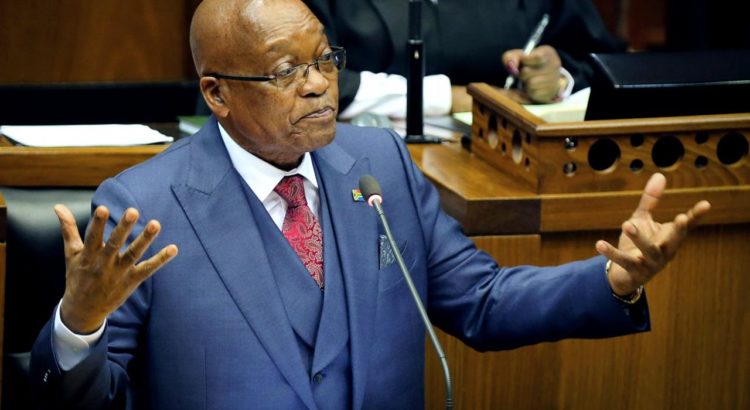South African/November 14, 2017/By: Alexander Winning, Mfuneko Toyana/ Source: http://www.reuters.com
South Africa should raise state spending on higher education by around a third to at least 1 percent of gross domestic product, a report commissioned by the presidency and released on Monday found.
The recommendation by the commission appointed by President Jacob Zuma came as a senior Treasury official resigned after news reports said he had complained about presidential interference in the budget process, and as state-owned utility Eskom said it was facing serious liquidity issues.
South Africa relies on foreign investors to finance its hefty budget and current account deficits. Investors are nervous ahead of important credit rating reviews scheduled this month and with the ruling African National Congress gearing up to elect Zuma’s successor as party chief in December.
The presidency said on Monday that Zuma would make an announcement on the higher education report once ministers had processed its findings.
Zuma set up the commission early last year in response to protests by university students demanding free education.
The rand and benchmark bonds weakened after the presidency said it would publish the report on Monday, but they were little changed after its release.
Currency traders and analysts said markets were waiting to see how the presidency would react to the report, but they said its recommendations were risky from an economic standpoint.
“If we start repeating this pattern of recording higher and higher budget deficits we are undoubtedly headed for downgrades,” said senior Nedbank economist Nicky Weimar.
South African GDP was around 4.3 trillion rand ($296.6 billion) last year, so an increase in government spending on higher education of 0.25 percent of GDP would amount to around $750 million of additional expenditure.
The commission also recommended that all university students should be funded through a cost-sharing model, whereby the government would guarantee income-contingent loans issued by commercial banks. Should a student fail to reach a certain income level, the state should repay the tuition loan, it advised.
Introducing those measures would make it more difficult for Treasury to rein in a projected budget deficit of over 4 percent of GDP for the 2017/18 fiscal year.
But it would be popular among young people and ANC voters, many of whom are dissatisfied that South African society remains deeply unequal more than two decades after the end of apartheid in 1994.
South Africa next holds a national election in 2019, and the ANC has seen its electoral majority shrink in elections.
TROUBLE AT TREASURY?
South African markets have also been pressured by fears that the independence of financial institutions is under threat.
Local media outlet Fin24 cited sources on Monday as saying that Treasury Deputy Director-General Michael Sachs had resigned last week after complaining that Zuma was interfering in the budget process.
Treasury confirmed Sachs’ resignation, saying only that his departure was because he wanted to “serve the public sector in a different capacity”.
International ratings agencies downgraded South Africa’s debt earlier this year after Zuma fired respected finance minister Pravin Gordhan in an abrupt cabinet reshuffle.
S&P Global and Moody’s are expected to review the country’s ratings again on Nov. 24, and all eyes are on whether they will downgrade its local-currency rating to “junk” status after Gordhan’s replacement, Malusi Gigaba, unveiled dismal medium-term budget forecasts last month.
Downgrades to sub-investment grade could trigger forced selling of up to $12 billion of South African bonds and pile further pressure on the rand, which is already trading at a 12-month low against the dollar.
South Africa’s debt insurance costs hit a four-month high on Monday, reflecting a greater likelihood of ratings downgrades.
Editing by James Macharia and Richard Balmforth







 Users Today : 72
Users Today : 72 Total Users : 35459978
Total Users : 35459978 Views Today : 96
Views Today : 96 Total views : 3418561
Total views : 3418561